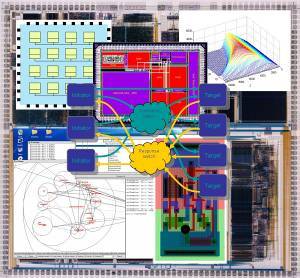
APT Postgraduate Opportunities
Group Interests
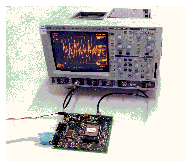
The Advanced Processor Technologies (APT) group has interests in many aspects of advanced and novel approaches to processing and computation. Current and recent projects have focussed on asynchronous technology and tools, novel on-chip multiprocessor architectures exploiting lightweight thread mechanisms, and hardware support for large-scale neural systems.
APT People and Ambience
The group currently includes 8 academic, 12 research and 2 technical support staff and 10 research students. Organisation is informal and interaction between workers in different areas of interest is encouraged. A meeting of the whole group is held most weeks where researchers (including, of course, Ph.D. students) have the opportunity to present their current work and ideas in the informal atmosphere of the group and gain from constructive critiscism and helpful suggestions.Postgraduate students - especially at PhD level - are encouraged to develop and publish their research. This enhances the value of a thesis, provides the opportunity to present work to the professional world at conferences, sometimes in exotic places, and raises the profile of the individual and the group in the research community.
Out of work hours group members "organise" various activities varying from theatre trips to badminton. Naturally a number of these (especially birthdays) involve beer.
The APT Project _ S p e c t r u m :
The Amulet Asynchronous
Processors 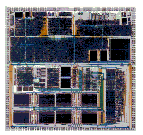
The group has a well established international
reputation for work on asynchronous processor designs which
have targeted both low power and low emission applications.
Amulet1
was the first asynchronous implementation of a commercial
32-bit processor architecture and earned the group a BCS
award in 1995.
Amulet2e
(1996) and
Amulet3
(2000) advanced the technology and culminated in the
integration of Amulet3 into the illustrated DRACO chip, a
commercial telecommunications controller.
The latest asynchronous design, SPA , is a synthesised processor designed for low electromagnetic leakage and power supply variation for use in high security applications such as smartcards.
If you are interested in opportunities for postgraduate
research in this area,
please contact:
Dr Jim Garside email: jdg@cs.man.ac.uk
On-Chip
Multiprocessing - The JAMAICA Project
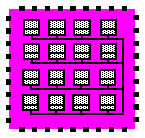
The challenge facing the processor designer is to
exploit the very large number of transistors becoming
available on a chip while controlling design costs. One
approach is to integrate large numbers of relatively simple
processors on a single chip.
The JAMAICA project is investigating the hardware and software technologies needed to exploit the performance potential of future VLSI. It starts with the assumption that future exploitation of Instruction Level Parallelism will be limited by complexity and that the future lies with collections of CPUs exploiting parallelism at the level of lightweight threads comprising hundreds or thousands of machine instructions.
If you are interested in opportunities for postgraduate
research in this area,
please contact:
Prof. Ian Watson email: iwatson@cs.man.ac.uk
Tools for Asynchronous Design
Commercial acceptance of Asynchronous design will happen only if a robust suite of design tools is available for its support. The group is working in the areas of High-Level Asynchronous Circuit Synthesis (Balsa), Simulation (Lard) and Layout-Sensitive production Test.
If you are interested in opportunities for postgraduate
research in this area,
please contact:
Dr Doug Edwards email: doug@cs.man.ac.uk
Hardware Support for
Large Scale Neural Networks

The
"SpiNNaker" project has begun the development of a hardware system
capable of simulating up to a billion neurons in real time.
The focus of this work is
"Neural Systems Engineering" -
understanding how robust high-performance computing systems
can be built from unreliable component neurons
If you are interested in opportunities for postgraduate
research in this area,
please contact:
Prof. Steve Furber email: sfurber@cs.man.ac.uk
Asynchronous DSP
The CADRE digital signal processor targets low power applications using innovative architectural features.
If you are interested in opportunities for postgraduate
research in this area,
please contact:
Dr Linda Brackenbury email: lemb@cs.man.ac.uk
Networks-on-Chip and GALS
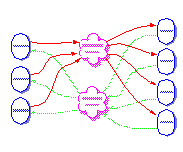
The integration of complete computer systems on single
chips requires on-chip
interconnect. Within the group the initial MARBLE
asynchronous bus was superseded by the more sophisticated
"CHAIN" system. Current work is concentrated on a GALS
(Globally Asynchronous Locally Synchronous) approach which
facilitates the exploitation of the best of each technology.
If you are interested in opportunities for postgraduate
research in this area,
please contact:
Prof. Steve Furber email: sfurber@cs.man.ac.uk
Advanced Computer
Arithmetic 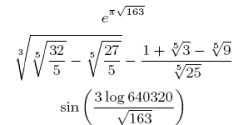
The floating point operations commonly used in science
and engineering applications are approximations dictated by
the accuracy inherent in the computer hardware. The errors
introduced by approximations can accumulate and give grossly
erroneous results which may be undetectable. Exact arithmetic
techniques avoid the fixing of the precision of intermediate
values and guarantees that such errors do not occur.
If you are interested in opportunities for postgraduate
research in this area,
please contact:
Dr David Lester email: drl@cs.man.ac.uk
The Future
If you are interested in any of these areas, or wish to do research on a related topic, contact us. However if you wish to apply you must fill in a University application form.

